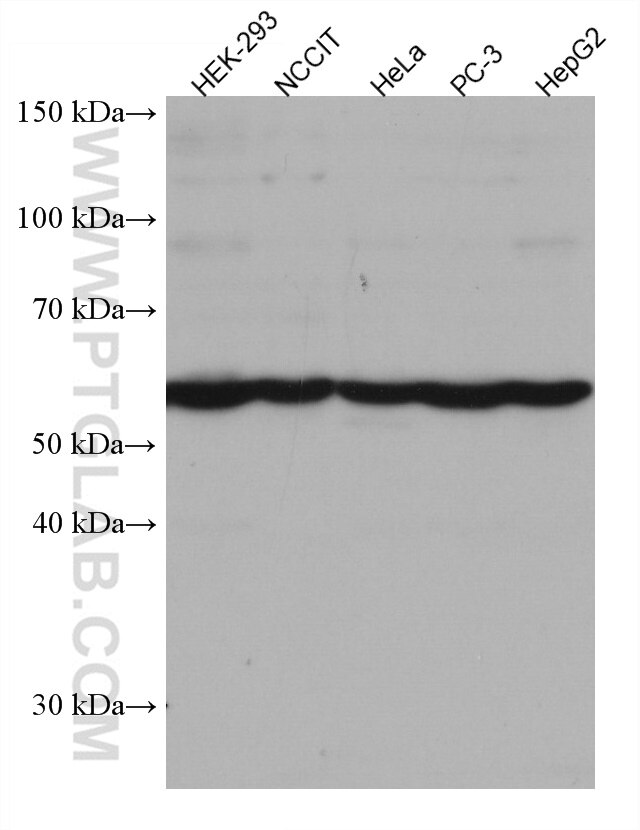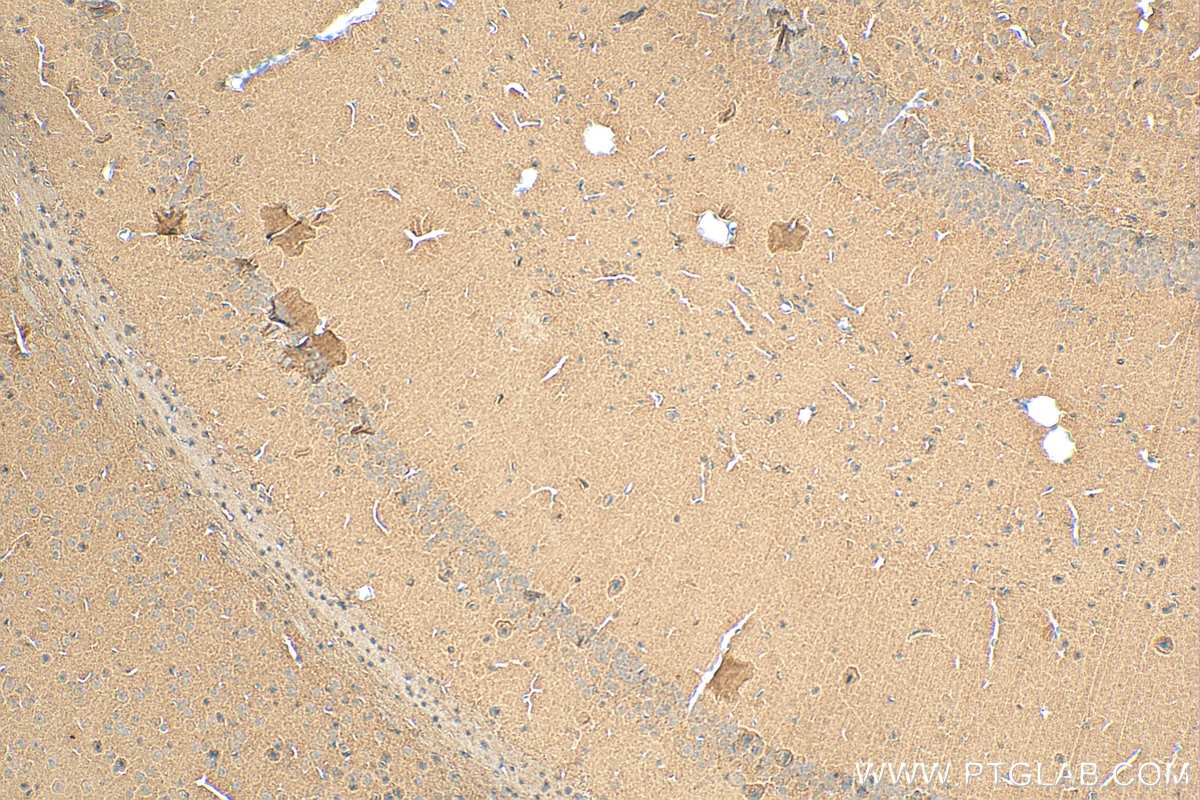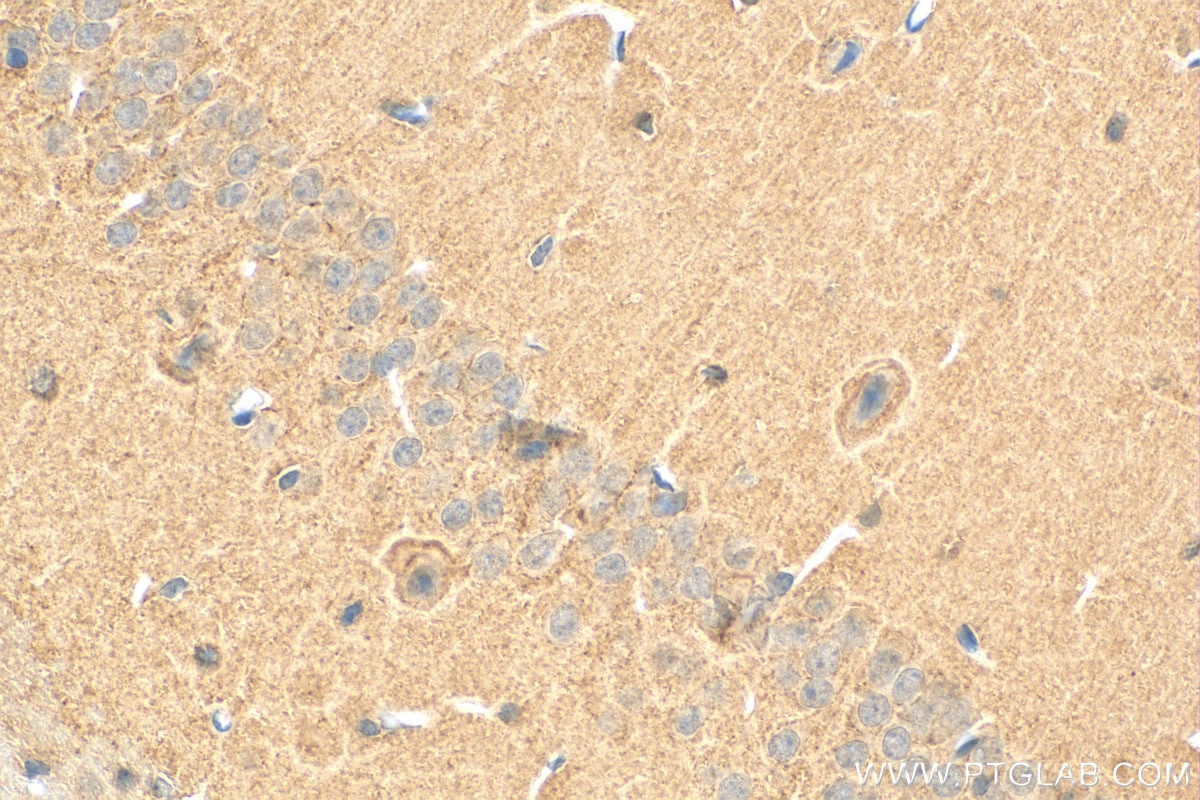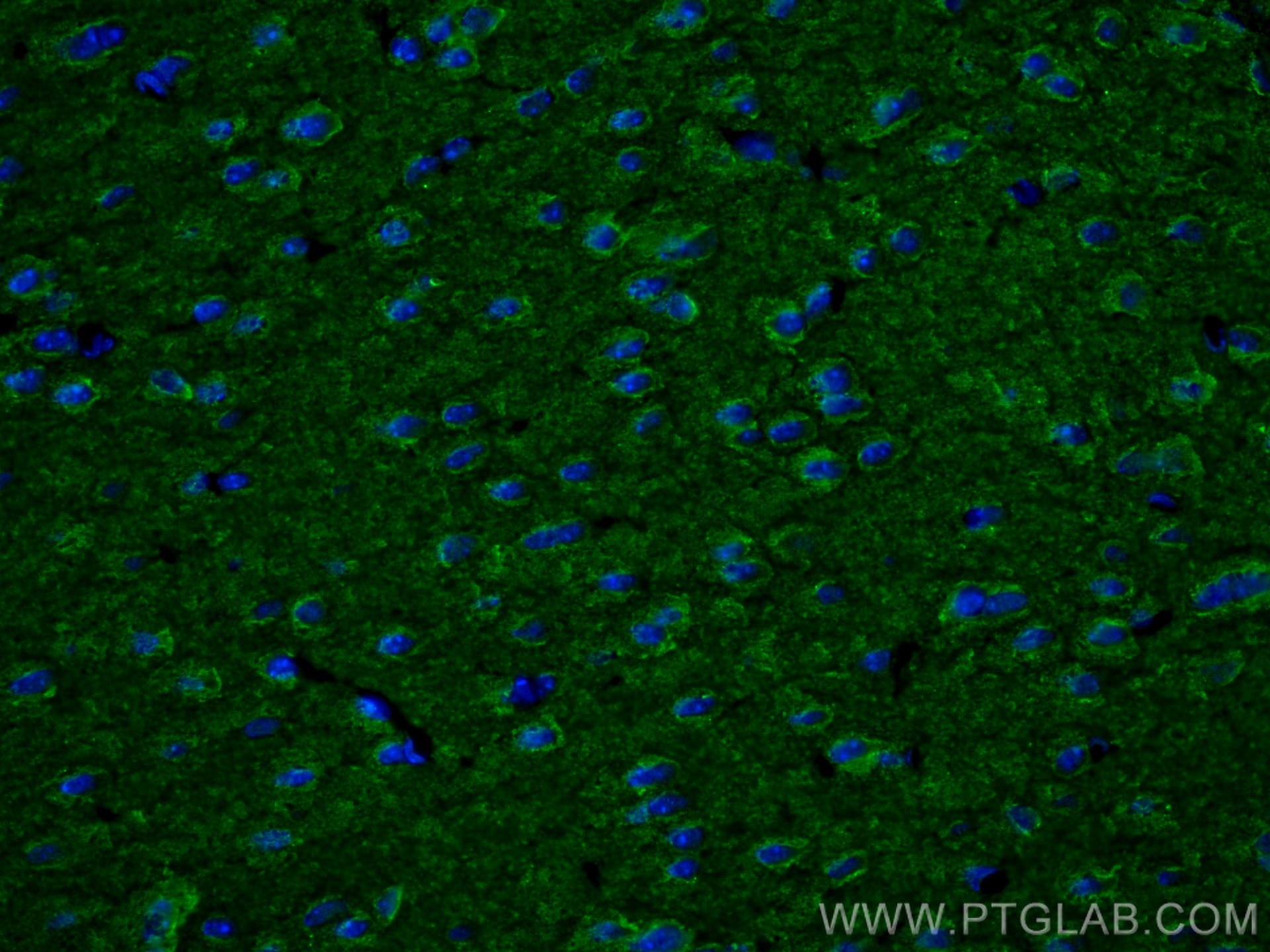Tested Applications
| Positive WB detected in | HEK-293 cells, NCCIT cells, HeLa cells, PC-3 cells, HepG2 cells |
| Positive IHC detected in | mouse brain tissue Note: suggested antigen retrieval with TE buffer pH 9.0; (*) Alternatively, antigen retrieval may be performed with citrate buffer pH 6.0 |
| Positive IF-P detected in | mouse brain tissue |
Recommended dilution
| Application | Dilution |
|---|---|
| Western Blot (WB) | WB : 1:2000-1:10000 |
| Immunohistochemistry (IHC) | IHC : 1:500-1:2000 |
| Immunofluorescence (IF)-P | IF-P : 1:200-1:800 |
| It is recommended that this reagent should be titrated in each testing system to obtain optimal results. | |
| Sample-dependent, Check data in validation data gallery. | |
Published Applications
| WB | See 1 publications below |
Product Information
67361-1-Ig targets SPAST in WB, IHC, IF-P, ELISA applications and shows reactivity with Human, mouse samples.
| Tested Reactivity | Human, mouse |
| Cited Reactivity | human |
| Host / Isotype | Mouse / IgG2b |
| Class | Monoclonal |
| Type | Antibody |
| Immunogen | SPAST fusion protein Ag18866 Predict reactive species |
| Full Name | spastin |
| Calculated Molecular Weight | 616 aa, 67 kDa |
| Observed Molecular Weight | 55 kDa |
| GenBank Accession Number | BC150260 |
| Gene Symbol | SPAST |
| Gene ID (NCBI) | 6683 |
| RRID | AB_2882613 |
| Conjugate | Unconjugated |
| Form | Liquid |
| Purification Method | Protein A purification |
| UNIPROT ID | Q9UBP0 |
| Storage Buffer | PBS with 0.02% sodium azide and 50% glycerol , pH 7.3 |
| Storage Conditions | Store at -20°C. Stable for one year after shipment. Aliquoting is unnecessary for -20oC storage. 20ul sizes contain 0.1% BSA. |
Background Information
SPAST encodes a microtubule-severing protein called spastin. By severing microtubules into small segments, SPAST participates in the regeneration of neurites. Mutations in the SPAST gene (previously known as SPG4) are the most common causes of hereditary spastic paraplegia (HSP-SPG4). Mammalian cells express at least two spastin isoforms, a less-abundant full-length form (M1-spastin, 68 kDa) and a more highly expressed isoform (M87-spastin, 60 kDa) that lacks the N-terminal 86 amino acids of the full-length protein. Also, there are two additional 64 kDa and 55 kDa isoforms due to alternative splicing of SPG4 exon 4. This antibody recognizes all these isoforms of spastin.
Protocols
| Product Specific Protocols | |
|---|---|
| WB protocol for SPAST antibody 67361-1-Ig | Download protocol |
| IHC protocol for SPAST antibody 67361-1-Ig | Download protocol |
| IF protocol for SPAST antibody 67361-1-Ig | Download protocol |
| Standard Protocols | |
|---|---|
| Click here to view our Standard Protocols |
Publications
| Species | Application | Title |
|---|---|---|
Neurobiol Dis The ataxia-telangiectasia disease protein ATM controls vesicular protein secretion via CHGA and microtubule dynamics via CRMP5 |









